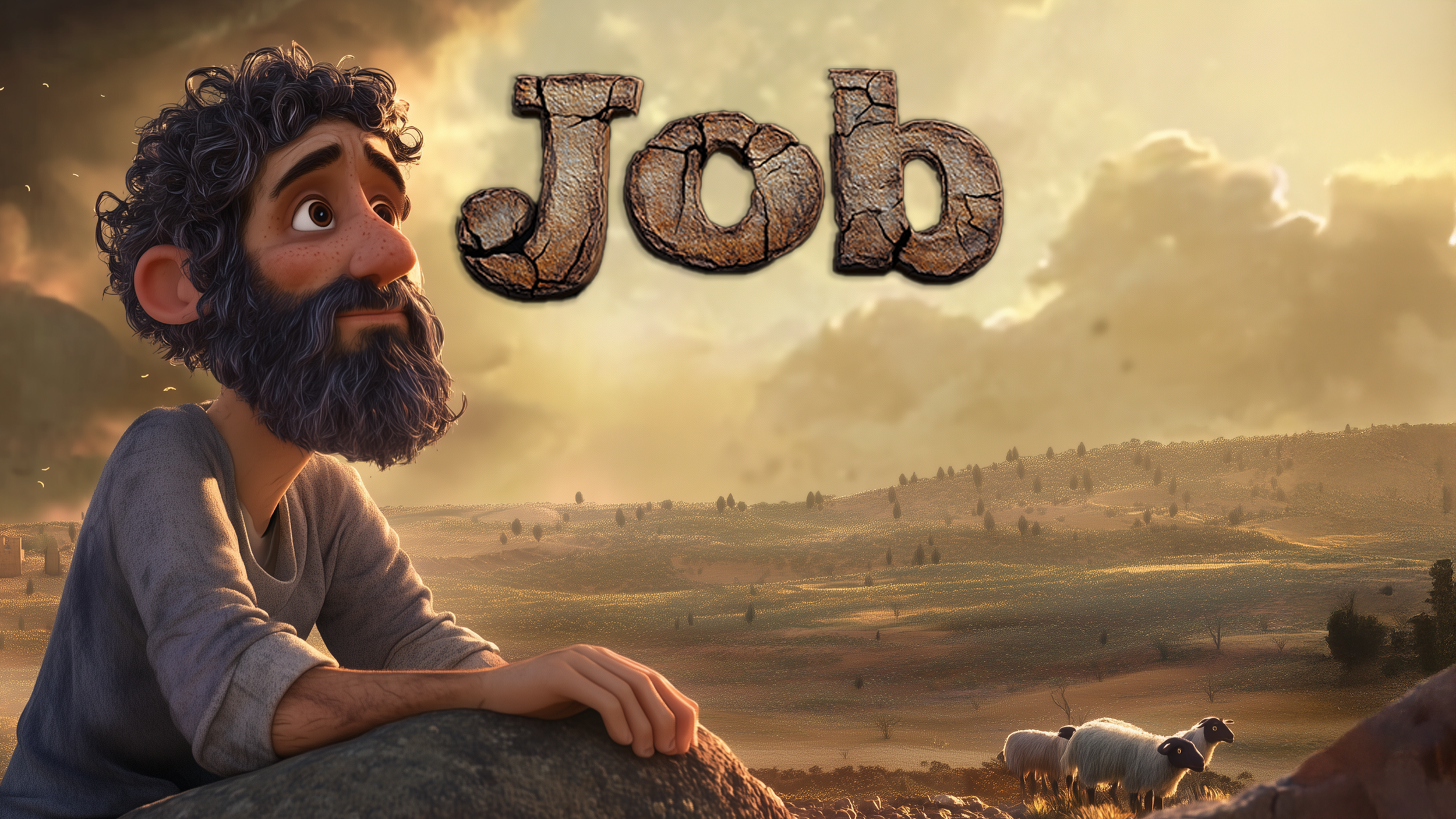My Redeemer Lives
READ
In the middle of Job's darkest hour, when hope seems impossible and faith feels foolish, he makes a declaration that echoes through eternity. These words have been spoken at countless funerals, inscribed on countless tombstones, and sung in countless hymns. But we often miss the context: Job speaks these words not from a place of victory, but from the depths of despair.
Let’s take a moment to read Job 19:25-26
“I know that my redeemer lives, and that in the end he will stand on the earth.
And after my skin has been destroyed, yet in my flesh I will see God.”
REFLECT
Consider what Job is facing when he makes this declaration. His body is wracked with pain, his friends have become his accusers, and he feels abandoned by God. He's wrestling with questions that have no easy answers, experiencing suffering that seems to have no purpose. Yet from this place of absolute brokenness, Job's eyes turn toward eternity and he sees something that transforms his perspective entirely.
The word "redeemer" that Job uses carries profound meaning. In Hebrew culture, a redeemer was someone who rescued family members from slavery, debt, or danger. It was a role that required both the ability and the willingness to pay whatever price was necessary for liberation. Job isn't speaking abstractly about God's general goodness; he's declaring his confidence that God will personally intervene on his behalf.
Notice the certainty in Job's voice: "I know that my redeemer lives." This isn't wishful thinking or desperate hope. Despite all evidence to the contrary, Job possesses an unshakeable conviction that his Redeemer is not only real but actively alive and engaged. This knowledge becomes Job's anchor in the storm, the one truth that remains constant when everything else in his world is falling apart.
The phrase "in the end he will stand on the earth" reveals Job's understanding that his suffering is temporary but his Redeemer's victory is eternal. Job looks beyond his present circumstances to see a future where God will have the final word. This perspective doesn't minimize his current pain, but it does provide a framework for enduring it. Job realizes that his story isn't over, that there's coming a day when his Redeemer will stand victorious.
Perhaps most remarkably, Job expresses confidence that even after death, he will see God. This isn't just hope for continued existence after death; it's expectation of restored relationship. Job anticipates not just survival but transformation, not just continuation but consummation. He sees beyond the grave to a reality where he will stand in God's presence, whole and complete.
This vision of eternity transforms how Job processes his present suffering. He's able to endure temporary pain because he's confident in eternal restoration. His hope isn't based on his circumstances improving in this life, but on his assurance that this life isn't the end of his story. Death itself becomes not a final defeat but a transition to ultimate victory.
Job's declaration also reveals the deeply personal nature of his faith. He doesn't say "I believe that God exists" or "I hope that someone will help me." Instead, he says "MY redeemer lives." This is personal, intimate, relational. Job's confidence isn't in a distant deity but in a personal God who has taken responsibility for his redemption.
For us, Job's words provide both hope and perspective. They remind us that our present struggles, however intense, are temporary. They assure us that our Redeemer is not only alive but actively working on our behalf. They give us permission to look beyond our current circumstances to the eternal reality of God's ultimate victory.
Job's example also teaches us that faith in eternal things doesn't require us to deny present pain. He doesn't minimize his suffering or pretend it doesn't matter. Instead, he places his pain in the context of eternity, allowing his hope in the future to sustain him through the present darkness.
RESPOND
Take a moment to process what God might be leading you to do in light of what you read.
How does Job's confidence in his "living Redeemer" provide hope for your current struggles?
What difference does it make to view your present circumstances through the lens of eternity?
How can focusing on the promise of seeing God transform your perspective on temporary suffering?
REST
Take a moment to rest in God’s presence and consider one thing you can take away from your time reading, then close your devotional experience by praying:
Livving Redeemer, thank You that You are not distant or detached from my struggles. Help me to see beyond my present circumstances to the eternal reality of Your victory. When I feel overwhelmed by temporary pain, remind me that my story doesn't end here. Give me Job's confidence that You will stand victorious and that I will see You face to face. Amen.

